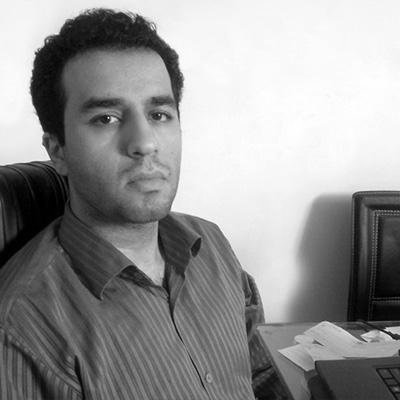
Last Update
June 15, 2020
Organisation
Unknown
Gender
Male
Ethnic Group
Unknown
Religoius Group
Muslim
Province
Khuzestan
Occupation
Social Media Activist
Sentence
17 months imprisonment
Status
Released
Institution investigating
Ministry of Intelligence
Charges
Insulting the Supreme Leader
Propaganda against the regime
Peyman Roshan Zamir Released
"There was no prosecutor and it was the judge who served as the representative of the prosecution.” “They were very angry at what I wrote and what I said.”
Roshan-Zamir was arrested at his home in Ahvaz on January 3rd 2011 for creating a web forum about social issues, publishing an article entitled “Legal Ways to Change the Supreme Leader”, and writing a letter on behalf of the Iranian Bloggers Society to Ayatollah Khamenei about the death of 29 year-old blogger and journalist Omid Reza Mir Sayafi while at Evin Prison. He spent two months in detention - one in solitary confinement at the Intelligence Bureau of Ahvaz and the second in Karun Prison. He was later released on bail. His trial took place on May 14th 2011, at Branch 3 of the Revolutionary Court presided over by Judge Barani. He was sentenced to 17 months in prison.
During the trial, he remained silent as a sign of protest against the illegal nature of the court proceedings. “Based on the constitution the trial of a political detainee must be public and be decided by a jury,” he told the Iranian Center for the Defense of Human Rights. “The government cannot be both the plaintiff and the judge. When the government files a complaint it is a jury of the people who must issue the verdict. The interesting point is that they tried me for propaganda against the regime while it was the regime that was violating the constitution. When the constitution says that the trial must be public it is to prevent false evidence in the case.”
“When the trial is behind closed doors they can rest comfortably that nobody can hear the defense of the accused and provide any false evidence they want. In my case, there was no prosecutor and it was the judge who served as the representative of the prosecution.” “They were very angry at what I wrote and what I said,” said Roshan-Zamir, regarding the charges against him.
Following his release, he wrote exposés about the inhuman conditions at Karun Prison. His writings and an open letter by Zia Nabavi, another political prisoner, about Karun led to the transfer of political prisoners to another jail in Ahvaz that offers somewhat better conditions. Roshan-Zamir is well acquainted with many classical and modern Persian poets, including Khayyam and Hafez, two of Iran’s greatest and most loved poets.
As part of his interrogation, he was asked about his interpretations of Hafez poems. “The interrogators wanted to prove that my understanding of his poems was wrong,” he says. When he was returned to solitary confinement at the end of the session, he said, “I wrote the poems on the walls of my cell in as big letters as I could:”
Roshan-Zamir lives in Ahvaz, where he writes software programs and designs websites.